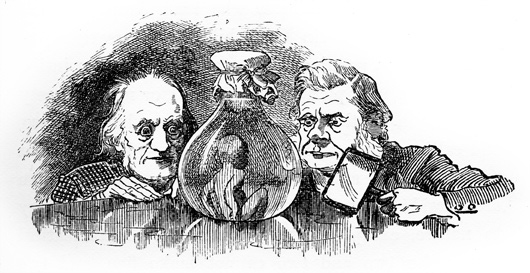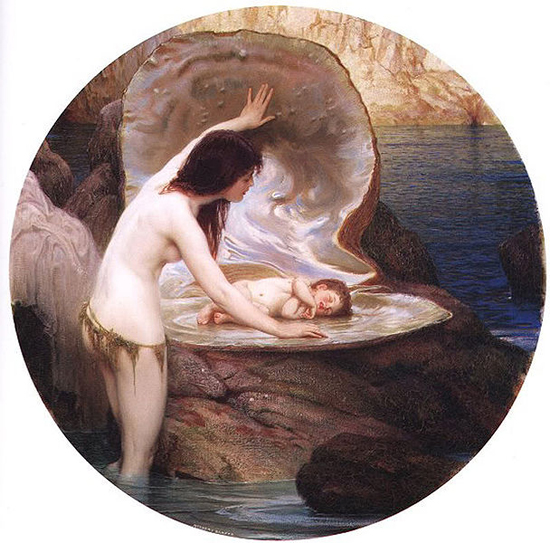Charles Kingsley's 'The Water Babies'
I read Charles Kingsley's The Water Babies, A Fairy Tale for a Land Baby (1862-63) as a kid. Didn't like it - too depressing - but then I didn't much like Alice in Wonderland either and now I love it. But, comfortable Victorian children must have been fascinated by the dark world of chimney sweeps and casual brutality that greeted them when they opened the book and that they rarely glimpsed in their own lives. It does end happily though.

The Water Babies works on both the level of a child and the level of an adult. For an adult it is protest literature - how children should be raised, respecting the natural world, and so on. This is always how the best fantasy literature and film operates, but it irritated some of Kingsley's contemporaries. Why would he include the references to evolution and other scientific controversies that they didn't agree with? Those contemporaries leveled the same charges at George MacDonald and Lewis Carroll, of course.
It resulted in this humorous cartoon in 1885 by Linley Sambourne, which shows competing biologists Richard Owen and T.H. Huxley studying a captured water baby. (In the story Tom wakes up to find himself 4 inches long and amphibious.)

Adult readers today are more likely to miss all this and never finish the book. Amazon reviewers and Wikipedians object to the moralizing Christian tone and the mocking comments about Americans and other species, but they appear to miss Kingsley's snarky sense of humor and playful sense of irony. "Am I in earnest? Oh dear no! Don't you know that this is a fairy tale, and all fun and pretense; and that you are not to believe one word of it, even if it is true?"
Below is Herbert James Draper's version from 1900, although it's not directly related to the Kingsley story.

